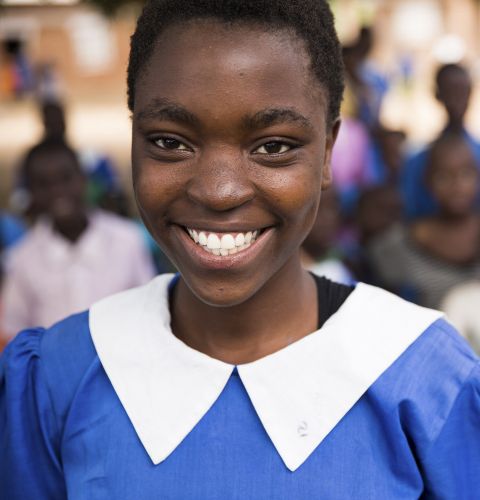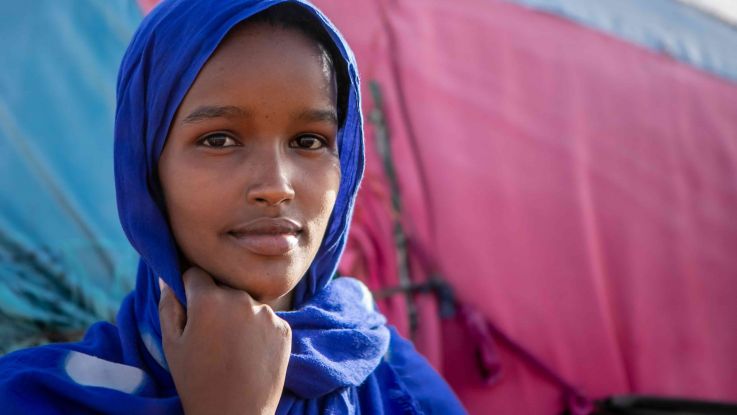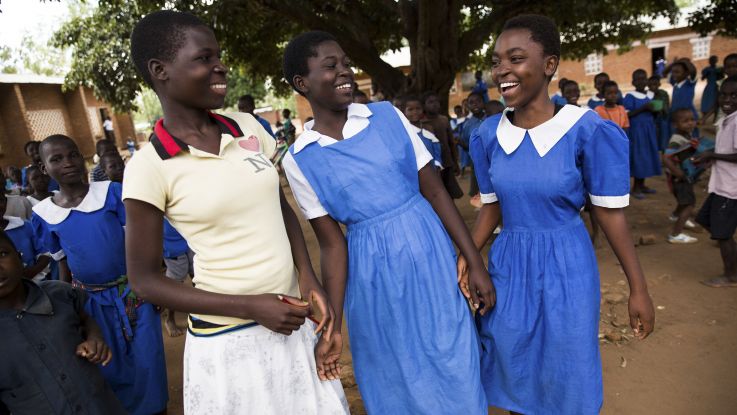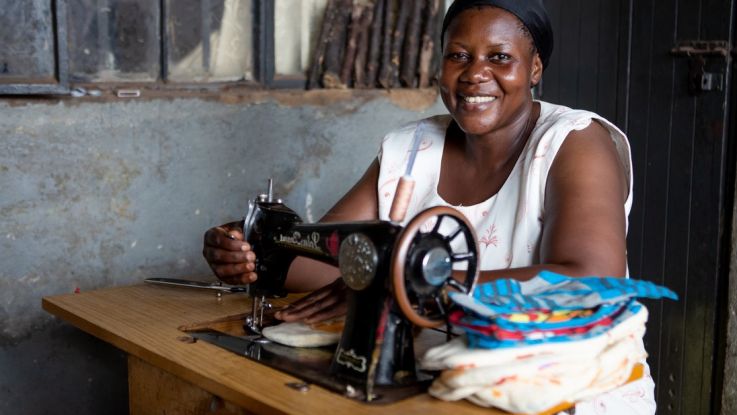Periods and girls’ education
Ending period poverty in schools
In Rwanda, many girls miss up to 50 days of school or work every year because of period poverty and stigma.2
ActionAid has built safe spaces for girls in nine schools in Rwanda. These safe spaces are rooms run by a matron in a separate building away from the school, equipped with a toilet, a shower, menstrual products, spare clothes, and a private space to change and rest.
These safe spaces ensure that girls don't have to fear the embarrassment of stains on their clothes, or boys in their class bullying them about it, which would stop them from going to school.
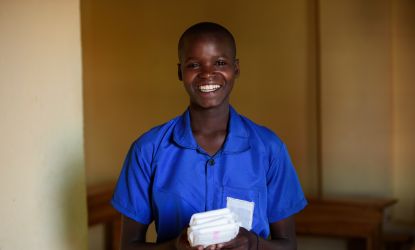
Jeanne, 14, has been supported at her school in Rwanda to end period poverty and shame
Jennifer Huxta/Actionaid
How ending period poverty improves education
“The safe room has helped us a lot," says Jeanne, 14, who goes to school in Nyanza, Rwanda.
"Previously we would miss school so many times, when you have your period maybe for 3-5 days.
"But now this room is here it really helps us because we don’t miss school any more if we get our period. We come here, we shower, we use the equipment like pads then we go back to class."
The teachers in Jeanne's school say that, before the safe rooms, girls were struggling with their work because they were forced to miss school every month.
Now, they are now competing with boys to take the top positions in class.
Periods education for girls in Rwanda
In some communities that we work with, taboos and secrecy surrounding periods means that often girls have never heard of menstruation before their first period, making it a confusing and traumatic experience.
Without sex education, myths about periods continue.
Girls tell us that they've been told they can't do certain things in their daily life when they have their period, from using salt in their cooking to milking animals, or that they can't get pregnant if they have sex while they have their period.
Our girls' clubs and period safe rooms give girls an environment where they can get information and ask questions about periods, sex and pregnancy, so that they are better informed about their bodies.
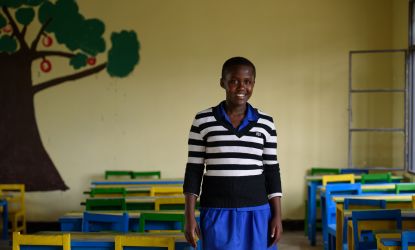
Busting period myths at school
Denise, 14, wants to be a doctor, and she's already taking on a leadership role in her school community.
She advises friends about their periods so they stay in school.
"My friends miss school a lot because they don’t want to be laughed at," she says.
She's learnt a lot from the matron, who supports girls in the school's period safe room.
The matron talks to people getting periods for the first time. She tells them about the healthy reproductive system, about the changes you get and about the risks of getting pregnant.”
The matrons in our safe houses are essential in giving girls sex education, so that they understand about their periods and sex, and aren't misled by myths.
Denise Uwase, 14, talks to her friends about periods and staying in school
Jennifer Huxta/Actionaid
Building safe, separate toilets at school
Without a safe, private toilet at school, girls can't feel secure and comfortable going to the toilet.
This is a problem throughout girls' school lives, but it is especially problematic when they are on their period.
A study in Ethiopia found that 50% of girls miss between one and four days of school per month due to menstruation.3
The impact of girls losing out on secondary education is huge: if all women had a secondary education, child deaths would be cut in half, saving 3 million lives.4

Helping girls to manage their periods in Ethiopia
The current toilet facilities at Annaso school, in the Girar Jarso community, Ethiopia, are little more than a hole in the ground. All the children in the school use the same toilet.
ActionAid is working with partners in the community to build a new school with separate toilets with running water.
Birhane Kenenies, who teaches at the school, says:
It’s especially important for girls to go to school because when they drop out they often get married. When they attend school they gain confidence and we educate them about their rights and about equality.”
Inadequate school toilets in Ethiopia can lead to girls missing school due to periods
Greg Funnell/ActionAid
Breaking taboos and ending period shame
Chhaupadi is an ancient period shaming practice carried out in parts of western Nepal. Although it's been illegal in Nepal since 2005, deeply-held views mean it continues.
Girls are banished from their homes during their periods and forced to live alone in isolated huts, because they are believed to bring bad luck.
But ActionAid is working with local communities to end the practice of chhaupadi for good, so that girls can go to school and can manage their periods with dignity.
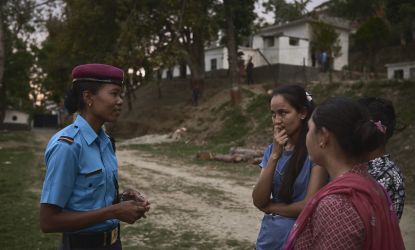
Rajkumari, 23 is a police constable fighting period shame in Nepal
Poulomi Basu/ActionAid
Standing up to period stigma in Nepal
23-year-old Rajkumari, is a woman on a mission.
A fully trained police constable, she is passionate about ending the stigma of chhaupadi.
She puts on street dramas and broadcasts on local radio to spread the anti-chhaupadi message. She also runs awareness raising sessions in schools.
In some cases, women and girls are losing their lives, they are dying in the hut, so it must be stopped."
Page updated 5 November 2025
